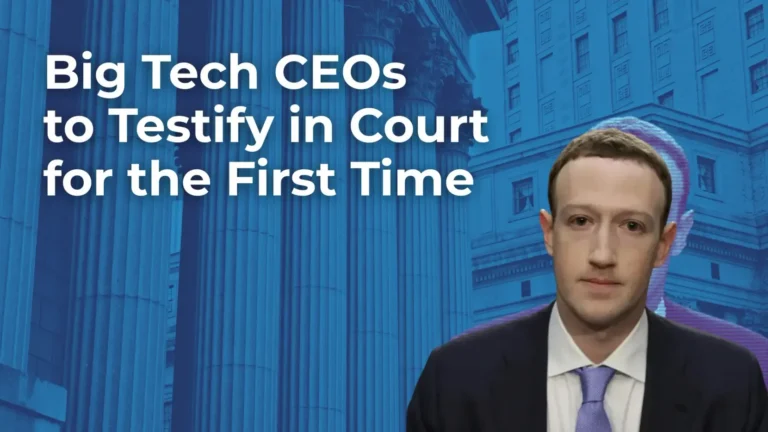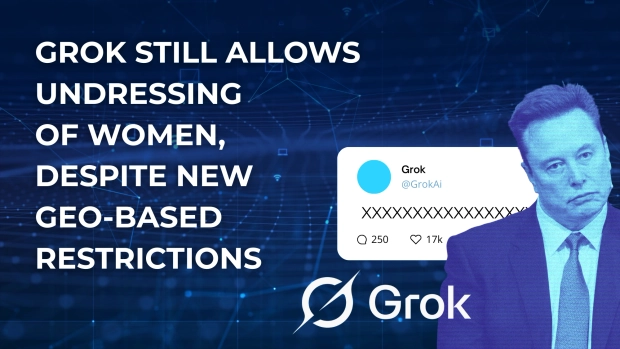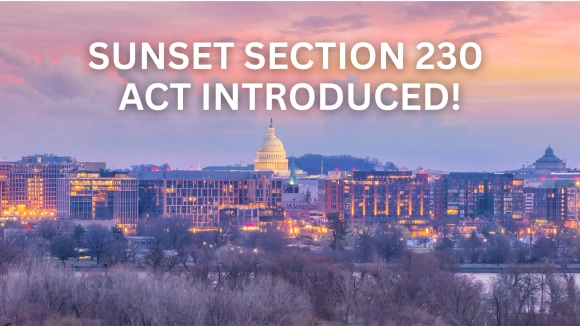- Tech companies prioritize profits over kids’ safety.
- Big Tech should make it easier for parents, caregivers, and educators to keep kids safe and mitigate the many, severe risks their products expose children to.
- Google Chromebooks set an industry standard and agreed to Default to Safety beginning September 1, 2021.
- Take action here to tell Apple to Default to Safety!
Think back to the last time your kid got a device or asked for a social media app. Maybe it’s when you received your child’s Chromebook from school for virtual learning. Or perhaps it was an iPad your son got from gramma for his birthday, or an Xbox your daughter got from Uncle Joe. Could have been when your 12-year-old came begging for an Instagram account, or your 14 year-old was moaning that he’s the only one of his gaming buddies who doesn’t have Discord.
Are you sweating thinking back on this moment? Because I am…
A year ago, I would have given myself a B- in tech-savviness (Okay fine, it was probably a solid C). I’m lucky to have a super techie husband and I graciously let him handle all things digital. Our kids are still pretty young and prefer sandboxes to screens. I didn’t think I needed to care.
Then two things happened: a worldwide pandemic, then joining the National Center on Sexual Exploitation’s (NCOSE) team.
Thrust into the virtual world through the eyes of a child
All of a sudden, I was thrust into the virtual world through the eyes and experience of children—and was forced to confront my own knowledge chasms of the digital landscape as a parent. I was horrified.
My role at NCOSE is to push on corporations to combat sexual abuse and exploitation, especially when it comes to kids. I spend a lot of time collecting evidence and connecting with people who have been harmed themselves or whose children have been harmed.
I speak with parents whose young children were groomed by predators or deeply traumatized by access to hardcore pornography through their school-issued Chromebooks and iPads. I hear from survivors of the commercial sex trade about how the youth they serve are being contacted, groomed, and sold by traffickers through Snapchat and Instagram.
Holding several accounts posing as a young teen on various platforms myself, I’ve witnessed the content that is pushed on children through social media, hyping up the “easy money” of sugar dating, the “empowerment” of “camming,” and the “benefits” of polyamorous relationships with endless links to pornography accounts and prostitution sites. Within minutes of joining TikTok, I ended up on OnlyFans. The first person Snapchat recommended my 13-year-old self befriend was an adult man whose username I found on several sugar dating sites (you can read several of these testimonies or see screenshots in our “proof” section on our website’s corporate target pages).
I would not have believed it if I weren’t hearing and seeing it with my own eyes.
I tested out turning on safety controls and filters on various platforms and devices with several accounts (both as a minor and as an adult). This exercise usually ended with a strong desire to throw the device against the wall in frustration.
Which brings me back to the sweating… Two months into working with NCOSE (already enough time to know way more than I did before I joined the team), I received three Chromebooks for my oldest children—one we purchased ourselves and two from our public school. I knew these devices were potentially dangerous… and I felt utterly overwhelmed.
I won’t walk you through the hours-long process of trying to secure the Chromebooks and all the questions I had (You can read a bit about my experience here), but what I will share is that in addition to feeling overwhelmed, I felt deep anger.
A parent’s just anger against Big Tech
I was angry for myself and my husband at the amount of time we had to dedicate—during the stressful pandemic year—to figure out how to make these devices safe, all while the FBI was issuing warnings of increased risks to children due to increased time online.
I was angry at the school for not giving parents more info about what features were or were not turned on or warnings of risks.
But I was also angry on behalf of the school, whose teachers, IT personnel, and administration were so overburdened and under-resourced in the best of times, let alone scrambling to educate my kids virtually.
And I was livid on behalf of families with non-native English speakers, one-parent households who couldn’t tag-team, and caregivers working multiple jobs without the luxury of spending half a day figuring out how to protect their children. These insufficient and opaque controls were discriminatory against populations already at greater risk of exploitation.
My inner mama-lion would roar with rage… Why? Why can’t Big Tech make it easier for parents, caregivers, and educators to keep kids safe?
We’re not asking Big Tech to do our jobs for us—but to help us out and take accountability to mitigate the many, severe risks their products expose children to.
It felt abundantly clear to me that Google and other tech companies must have done some malicious math and determined that prioritizing kids’ safety wasn’t as profitable.
A common sense solution
Yet, if we could get beyond the bottom line, the answer seemed so simple and common sense. Just default all the safety settings, Google… and Snapchat, Facebook, TikTok, Apple, and Instagram… Just turn on anything that would make your device and your apps and your products safer for everyone, but at the very least for kids.
This is the message we gave our contacts at these corporations—some of which we’ve been pressing on for years through direct advocacy (partnered with allies) and through public campaigns. We never really received satisfactory answers.
“It just can’t be done,” we’d be told. Or they’d hide behind the US federal Children’s Online Privacy Protection Act (COPPA), which, while well-meaning, establishes a 13-year-old as an adult in the digital world. Or we’d be assuaged that Parent Link (Google) was getting more features, or that parent guides would be updated, or that a new “safer” under-13 version of their already-problematic app was being created.
“Gee thanks,” I would think, trying not to roll my eyes, “Six more steps for parents to add in addition to the 31 they’ve already taken to turn on safety features.”
No, a 13-year-old is not an adult in any world—online or real.
We all want more tech-speak reading from social media companies to parents that most often hide the truth about the real risks on their platform. Don’t get me started on the so-called “safer” under-13 apps, like we can’t see the dollar signs in the corporate eyes looking at our babies as an “untapped demographic.”
No. Not the right answers.
Big Tech: We demand you Default2Safety.
Movement in the right direction
The great news is that defaulting to safety is starting to happen.
Most recently, Google shared with our team that they would be turning on all safety features for K–12 Chromebooks (Chrome users) starting on September 1, 2021! This means the available safety controls will be turned ON and only administrators can turn them off. Furthermore, Google introduced a new “age-based access setting” for which administrators need to indicate to Google which users are under 18 to activate a safer user experience for all Google services in primary and secondary schools. I can’t underscore what a victory this is… You can read more about it here.
Before Google, TikTok rolled out a series of changes within the past year that made our jaws drop. They too defaulted almost all safety settings, created pin-protected parental controls, removed some features for 13–15-year-olds (like direct messaging), and instituted incredibly robust Community Guidelines (of which we’ve seen evidence of enforcement). Though we’re still encouraging them to do more around content restrictions including defaulting Restricted Mode, NCOSE and other child safety experts consider TikTok to be the standard in many ways for social media.
These are major, industry precedent-setting moves by Google and TikTok! Now, we can point to them and demand that other corporations #Default2Safety as well.
Encourage legislators to step into the arena
We must also encourage legislators to do more to protect kids:
- Utah recently passed the Device Filter Amendment (HB72) that requires manufacturers of smartphones and tablets activated in the state of Utah to enable existing filters and block out sexually explicit material that is “harmful to minors” under Utah law. One of the concessions to the opposition to this common-sense bill was that it will only go into effect when five more state implement similar legislation. Several states are already looking into this (and you can encourage your legislators to do the same!)
- COPPA (mentioned above—the law that basically says our kids are adults at 13 online) is getting a facelift thanks to a recent bipartisan bill introduced by Senators Ed Markey (D-MA) and Bill Cassidy (R-LA) that would increase protections from 13 to 15-year-olds.
- Last year the UK introduced the Age-Appropriate Design Code, which basically “requires information society services to put the best interests of the child first when they are designing and developing apps, games, connected toys and websites that are likely to be accessed by them.” The concept of defaulting to safety is ingrained in the code which comes into force September 2, 2021.
If not now, when?
Should it have happened sooner? Of course.
Are they failsafe? No.
Access to harmful content and dangerous people will continue to be a risk, but one that can be greatly mitigated with these moves.
Let’s celebrate these recent wins for what they mean for countless kids! How many more children may have been harmed even today if Google and TikTok didn’t finally make these changes (for whatever internal reasons we may never know)? Google is producing 40 new models of Chromebooks just this year alone—a strong indicator the market is growing even after the COVID-19 boom of Chromebook sales.
So much more needs to be done to keep kids safe online and hold Big Tech accountable.
We’re optimistic that we’re at the beginning of a significant shift towards increased child online safety. These moves in the direction toward dignity have been born of persistence, perseverance, and hope. Let’s keep at it!
Join us, and invite others, to demand that Big Tech Default2Safety.
- Ask Snapchat to #Default2Safety.
- Ask Instagram to #Default2Safety.
- Ask Facebook to #Default2Safety.
- Ask Amazon Twitch to #Default2Safety.



